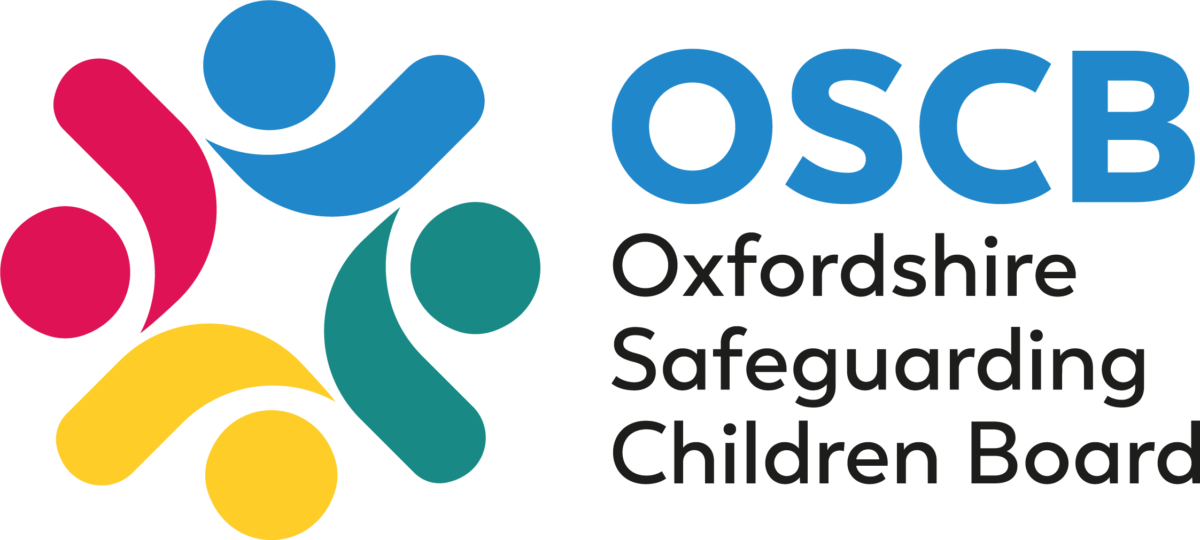Safeguarding in Education
Keeping ch ildren safe in (and out of) early years settings, schools and colleges is something we know is important from the safeguarding reviews and audits we do. We know that children are simply safer when they are in education.
ildren safe in (and out of) early years settings, schools and colleges is something we know is important from the safeguarding reviews and audits we do. We know that children are simply safer when they are in education.
The OSCB Safeguarding in Education subgroup meets three times a year to ensure that all staff in early years settings, schools, colleges and other education providers are aware of key safeguarding issues, are able to escalate their concerns to the Board and Executive Group and influence the strategic development of services.
This webpage aims to:
- provide information, guidance and research on keeping children safe in education settings
- share key messages from the subgroup and wider board meetings
- highlight specific safeguarding issues, good practice and research relevant to education settings
Statutory guidance for schools and colleges on safeguarding children and safer recruitment
- Keeping children safe in education 2023
- Keeping children safe in education: information for all school and college staff 2023
- Regulated activity in relation to children: scope
Education Safeguarding Advisory Team (ESAT)
The Education Safeguarding Advisory Team (ESAT) give advice over the phone, carry out safeguarding health checks (previously known as audits) and offer support to educational settings to embed their safeguarding practices.
Local Authority Designated Officer (LADO)
The LADO gives advice and guidance to employers and others who are concerned about an adult who works with children including volunteers and agency staff.
Click on the title link for further information or visit Oxfordshire County Council’s Schools Safeguarding webpages
Early Help and the Locality and Community Support Service
The Locality and Community Support Service (LCSS) is part of Oxfordshire County Council’s Children’s Services Integration Programme. You can find your local LCSS contact on our Early Help page.
The LCSS provides advice and guidance to universal professional partner agencies including schools, health and voluntary and community groups, across Oxfordshire when emerging concerns are raised for children that do not require an immediate safeguarding response.
The LCSS are the first point of contact where non-immediate safeguarding concerns are identified.
Child Exploitation Toolkit for Education
This guide provides information to support children and families who are impacted by exploitation. This could be criminal, sexual, or any other kind of exploitation. It links to resources and services available to schools and settings which support children and young people.
It can be used to support referrals and early intervention work and provides support for a coordinated multiagency response to exploitation.
Identifying and naming neglect in education settings
The following tools and resources have been developed for use in education settings in response to the learning from safeguarding reviews involving neglect:
- Neglect standards for education (2024)
- Early Years Neglect Strategy Audit Tool 2023
- Neglect baseline questionnaire 2021-22
- Neglect good practice case study for education settings Mar 2021
Please also see the
Education hub: Mental health resources for children, students, parents, carers and school/college staff
The ongoing pandemic, and associated measures and restrictions, such as social distancing, have had an impact on the mental wellbeing of some children and young people. This site pulls together some useful links and sources of support so that children and young people, parents, carers, and school and college staff can get the advice and help they need.
Further resources
- Safeguarding in Education E-bulletins
- Safety Programmes for schools Dec 21
- Knife crime guidance for children and schools: June 2020
- Safe Stories was created to highlight some of the issues being faced by teenagers as a result of mobile and internet technologies, recent stories involve drug exploitation and coercion and control in a teen relationship. These are problems which young people working with SAFE! tell us about every day. The SAFE! YouTube Channel contains all of the Safestories videos and Safestories website is currently being updated with new stories. SAFE! have developed accompanying teaching resources which can be requested by completing this request Request for teaching resources for the safestories videos form
- Training
- Anna Freud NCCF: 5 Steps to Mental Health and Wellbeing
- Pupil Voice– good practice resource developed by Wood Eaton for use in 1:1 sessions with children when they return to school
- Reflections on Covid 19: Creating a vision of vulnerability on which to build trust and plan support by Anne Peake
RSE framework for pupils with SEND and/or additional needs
The RSE framework for pupils with SEND and/or vulnerabilities and resources are managed by the RSE Task and Finish Group which was established in February 2020 to specifically consider and address the safeguarding needs of young people with vulnerabilities (e.g. high functioning autism, mild / moderate learning disabilities, ADHD, attachment disorders, etc.). The group comprises of representative members from Learner Engagement Services, SENSS, Education Psychology, Children’s Social Care, LCSS and Schools (Primary, Secondary, Special, Virtual Schools for LAC and Independent). This group is accountable to the OSCB Safeguarding in Education Sub-Group and meets annually or as needed to review/update the framework and resources.
For further information, see below:
- Oxfordshire Relationships Education (PRIMARY and SECONDARY) and Sex Education (SECONDARY) framework for pupils with SEND and/or additional needs
- Statutory guidance: Relationships education, relationships and sex education (RSE) and health education
The NSPCC have launched a dedicated helpline for children and young people who have experienced sexual harassment or abuse at school, and for worried adults and professionals that need support and guidance.
To contact the NSPCC helpline, Report Abuse in Education, call 0800 136 663 or email help@nspcc.org.uk
